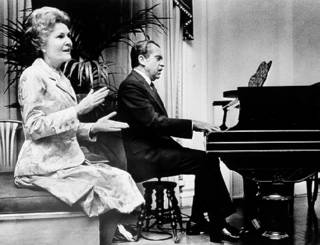As a historical songwriter, that is. See, everyone has assumed that Positively 4th Street is about the scene Dylan knew when he lived in
161 West 4th Street in 1962. That assumption is wrong: the song is actually about the rivalry and enmity between Alexander Hamilton and Aaron Burr, both of whom were based in New York City and were active in local politics during the period of their rivalry.
A look through the lyrics amply demonstrates the accuracy of my interpretation:
You got a lotta nerve
To say you are my friend
When I was down
You just stood there grinning
You got a lotta nerve
To say you got a helping hand to lend
You just want to be on
The side that's winning
This verse obviously refers to Burr's appeals to New York Federalists once he had begun to fall from power in the New York Republican party, displaced by the Clintonians and Livingstonians. This fall from grace resulted partly from how damnedly undignified "Burrian" sounds.
You say I let you down
You know it's not like that
If you're so hurt
Why then don't you show it
Of course, this is Hamilton's reaction to Burr's suspicions that Hamilton intrigued against him, to the advantage of the Jeffersonians who had it in for Burr. This is fairly close to the tone Hamilton took in his responses to Burr's challenges to an affair of honor (i.e. duel).
You say you lost your faith
But that's not where it's at
You had no faith to lose
And you know it
It's amply documented that Hamilton's problems with Burr stemmed not from his politics (Burr's Republicanism was far more tolerable to the Federalists than was Jefferson's), but from Burr's seemingly total lack of moral scruples. Hamilton was not at all surprised, then, that once Burr was ostracised from Republican circles, he strongly allied himself with the Federalist party, or what was left of it.
I know the reason
That you talk behind my back
I used to be among the crowd
You're in with
Do you take me for such a fool
To think I'd make contact
With the one who tries to hide
What he don't know to begin with
Unfortunately, Dylan gets the order of events wrong, as he is wont to do in historical songs (cf. "With God on Our Side", in which he puts the Spanish-American war
before the Civil War). This pair of verses obviously applies to Burr's standing with the Republicans back when Hamilton was Treasury Secretary, long before the events described in the first few verses. I don't understand why Dylan gets these things wrong.
You see me on the street
You always act surprised
You say, "How are you?" "Good luck"
But you don't mean it
When you know as well as me
You'd rather see me paralyzed
Why don't you just come out once
And scream it
It's been remarked upon that in the weeks between arranging the duel and consummating it, Burr and Hamilton shared polite company together and seemed to be quite at ease at one another.
No, I do not feel that good
When I see the heartbreaks you embrace
If I was a master thief
Perhaps I'd rob them
Again with the bizarre order lapses! Burr's promiscuity was infamous (he bragged about it, giving great detail, in letters to his cherished daughter), and was a major reason Hamilton distrusted him. A.H. could deal with Jefferson sleeping with Sally Hemings much more easily than with Burr sleeping with married women, prostitutes, and ingenues left and right.
"And now I know you're dissatisfied
With your position and your place
Don't you understand
It's not my problem"
Of course, one of the reasons Burr fought the duel was to enhance his reputation and revive his failing political career (more or less the same reasons Hamilton accepted it against all his better judgement).
I wish that for just one time
You could stand inside my shoes
And just for that one moment
I could be you
Yes, I wish that for just one time
You could stand inside my shoes
You'd know what a drag it is
To see you
These lines are obvious and require no further explication from me. It's patently obvious that my interpretation is right, of course, but Dylan does need to work on those little chronological-order problems of his. Cars and slave-trading in DeLacroix? Wha?




